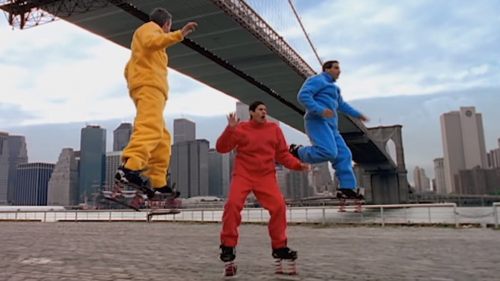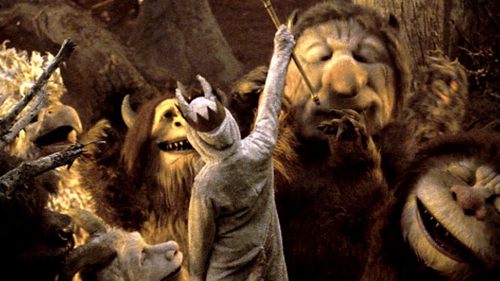Spike Jonze: Auteur Of Alone
All art is, on some level, created out of loneliness. Artists try to communicate their intimate feelings and truths to the rest of the world, trying to bridge the infinite gap that separates us. That loneliness - and the attempts to communicate through it - resonates deeply in the feature films of Spike Jonze.
Being John Malkovich means a lot of things, but the central conceit - entering a tunnel that puts you in another human being’s head - is about the obliteration of the spaces between us. The group of old people who are guarding the tunnel want to live longer, sure, but they want to live longer as a group, joined together forever in the vessel. They’re not just leaving behind mortality, they’re leaving behind solitude.
In Jonze’s next film, Adaptation (written, like Being John Malkovich, by Charlie Kaufman), Charlie experiences the most agonizing kind of loneliness. He shares DNA with his identical twin brother Donald, but they couldn’t be more different. Even the being who is, on some biological level, the same as he is is alien to him. Charlie struggles to connect with other people, hoping that his writing will do the trick, but he finds that the script for his adaptation of The Orchid Thief will not work, that he can’t find the words to say the things he wants to say.
All of Jonze’s protagonists are artists - Charlie the writer, Craig the puppeteer in John Malkovich - and Max in Where The Wild Things Are is no exception. Even though he’s a little kid Max has a precocious creative mind, and he’s built a beautiful diorama of another world in which he wants to live. In that world, unlike the real one, he’ll have friends who care about him, people who listen to him. In the real world Max plays alone in the snow, trying to get his sister to hear him through a closed window. He can’t communicate to her, and he can’t communicate the anger and loneliness he feels to his mother; he’s only able to express it in growls as he chases the cat around the house. Like all of Jonze’s heroes, Max is surrounded by people and yet feels utterly, helplessly alone.
It all culminates in his latest movie, the masterpiece Her, where Joaquin Phoenix’s Theodore (a writer) lives in a bustling, crowded future Los Angeles but finds his every day to be utterly solitary. His job has him writing letters for others, experiencing an intimacy he fears can never again be his in the wake of his impending divorce. Theodore is able to speak for others, but he can’t communicate his wants and needs… until he meets Samantha, who just happens to be the AI that powers his new operating system.
In each of Jonze’s movies the loneliness is pierced through unconventional living, and Her never makes a judgment about the love Theodore has for Samantha. The premise sounds like a joke - a guy falls in love with Siri! - but the reality is powerful and, in many ways, reassuring. Loneliness, Spike Jonze tells us, can be transcended, even if it’s just for the time you’re in an actor’s head or living on an island of monsters or falling in love with an artificial intelligence. And it’s transcended in those hours we spend in Spike Jonze movies, realizing someone else understands how we feel.
This article was published in the January issue of Birth. Movies. Death., which celebrates Her. Look for it at your local Alamo Drafthouse or read it online here!



